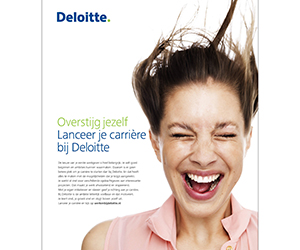Could you tell something about yourself, your education and your career?
I have had an interesting career. I started as a History student in Amsterdam (1974) and finished my doctorate in seven years. Since I was afraid of the limited choice of professions available in History, I went to specialize in International Relationships at the Johns Hopkins University (USA). I mainly studied international economics and I feel like an economist, but without the title. One day before I was to get back to the Netherlands, I was offered a job and worked for four years at a local bank in Washington DC. Afterwards, I thought this job was rather boring. Commercial work does not suite me, I am more interested in public cases. So, I took up a job at a department of the Ministry of International and Monetary Affairs at The Hague. This was just before the monetary union with the Europe. Nothing much happened there and after a year and a half, I started to feel bored again. Around this time, a position as an employee of the House of Parliament became available with the VVD. Just after I decided to go work there, the European Monetary Union started to become serious matter. At the VVD, I was mainly an advisor and speechwriter for Frits Bolkestein. One move led to another and I became a member of the House of Parliament. As Member of Parliament, I was mainly involved with the accession of The Netherlands to the European Monetary Union. Thereafter, I have been State Secretary of Social Affairs, then Minister of Finance for a short period of time and at last the last stages of my political career, I served as the Minister of Health. In this position, I reformed the provisions related to health insurance to what you know now. Then, I thought that I have had enough of politics and I ended up with the “Autoriteit Financiele Markten” (Authority Financial Markets, AFM). Here, I again got in contact with the profession of accountancy, which I experienced only at a rudimentary level during my time in America. At the AFM, I have been active internationally and came into limelight as the Chairman of the IASB. As former History student, I could not have suspected this.
How do you remember your time in the House of Representatives and as chairman of the AFM?
My time in politics was amazing. You are always busy with important things, such as health care insurance. These matters are important for all Dutch citizens and the design of the health care. There are complicated economic, political and income distribution problems. You have to keep an eye on everything, consider every detail and know really well which strategic direction you want to go. Otherwise you will lose track. This often happens in politics and the minister then becomes a puppet of the House of Representatives. There are interesting, problematic cases, but I really enjoyed this period. I did not like the politics by itself, but I liked arranging important things. A common thread in my diverse career is that I have always served on the public matters. At the AFM, I supervised the financial world. I started my job at AFM just after the financial crisis in 2007. This made my time very interesting. In fact, I have never had a boring job, except in the beginning.
What does a normal workday look like for you?
I do not have a standard working day. Since I am the Chairman of an international organisation, I travel a lot – about one third of my time. Mostly I make an intercontinental trip and one to Europe every month. When I am in London, I speak with officials, ministries, fellow auditors, stakeholders and companies. I also need to read a lot to prepare for my board meetings. Reading papers is still very complicated. When I started as Chairman, on half the occasions, I had no idea what my fellow board members were talking about since this is a very technical field. Now, I understand about 80%, the other matters are mostly details that I do not need to understand. It requires a lot of study that I did not do earlier, and now I am not able to catch up anymore. Even in my current position, there is a lot of politics. However, the accountancy is a very flexible profession and depends on economic insight and judgement.
What is the working environment like in London compared to the Netherlands?
London is a dynamic capital. People work hard and have less vacation than in the Netherlands. I am working in an international environment that is very different from a Dutch organisation. We are working with 150 employees of thirty different nationalities, it is a cohesive organisation. This is why I like my job. Office space in London is very expensive so we work a bit closer to one another.
In the Netherlands people say things straight away. Do you have the experience that people in your international environment are less direct?
Yes that is true. In politics I often told it as it is but this works only when you use this with intellect. Dutch people tend to be blunt, you have to prevent this. However, Britons are more cautious but we work well together.

















